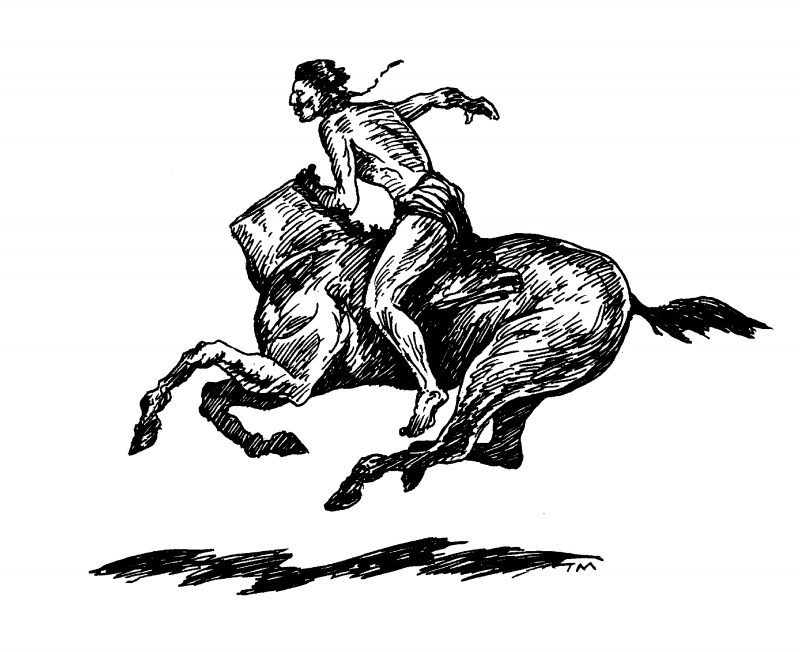Here, in its entirety, is a short story by Kafka, called “The Wish to Be a Red Indian”:
If one were only an Indian, instantly alert, and on a racing horse, leaning against the wind, kept on quivering jerkily over the quivering ground, until one shed one’s spurs, for there needed no spurs, threw away the reins, for there needed no reins, and hardly saw that the land before one was smoothly shorn heath when horse’s neck and head would be already gone.
This sentence, a plaintive and mysterious journey into white space, both expresses and embodies a yearning as physical as it is metaphysical, a yearning typical of its writer and indeed all writers: the wish to be a more natural, less self-conscious being. Or to put it another way, to not be a writer at all. Let’s face it, no one’s better at writing about not wanting to be a writer than someone who actually is a writer. And among writers, no one’s better than Kafka, for whom wanting and being are almost never in sync. “The impossibility of not writing, the impossibility of writing German, the impossibility of writing differently,” he laments in one letter. “One might also add a fourth impossibility, the impossibility of writing.” But then he’s hardly alone in this. “Live all you can”—the Master himself says, or rather writes—“it’s a mistake not to.” Who wouldn’t trade in all that fretting irritability, all that envy and eye strain, for the life of an (OK, rather absurdly notional) “Indian,” someone wild and natural and sure, plunging headlong through space with such velocity and purpose that no spurs or reins are necessary? Though maybe headshort would be more accurate in this case, for the head in Kafka’s story, when it finally appears, is something of an afterthought; a head as attenuated from its body as a Giacometti, a head syntactically and existentially, almost Twilight Zone–ishly, “already gone.”
We find this same itch for unfettered animal movement—for existence reduced, or enhanced, to mere body-in-motion, shorn of mental entanglements and obligations, and “quivering with the fever of life”—everywhere in Kafka’s work, to say nothing of his life. Take this entry in The Blue Octavo Notebooks: “He leaves the house, he finds himself in the street, a horse is waiting, a servant is holding the stirrup, the ride takes him through an echoing wilderness.” Or the narrator of “The Departure,” who, having ordered his servant to fetch his horse from the stables, is stopped at the gate and asked where he’s going. “I don’t know,” he says. “Just out of here, just out of here. Out of here,...
You have reached your article limit
Sign up for a digital subscription and continue reading all new issues, plus our entire archives, for just $1.50/month.
Already a subscriber? Sign in





